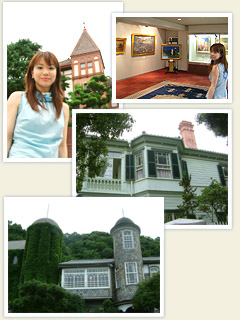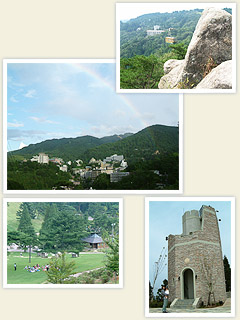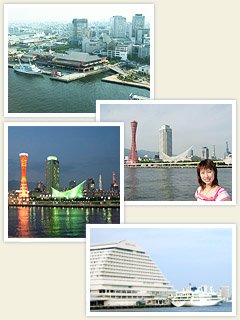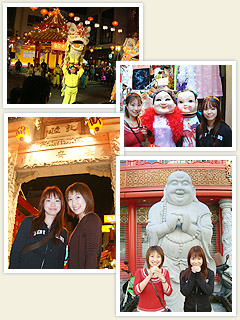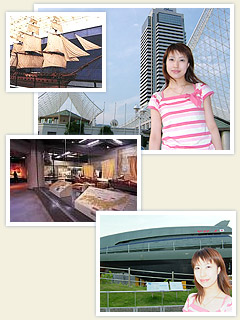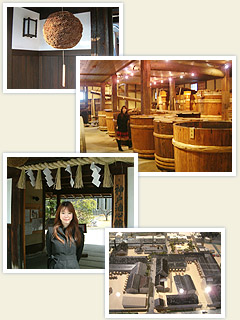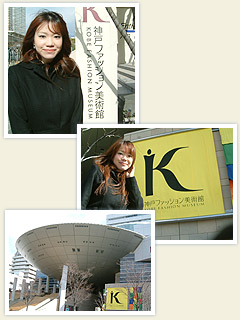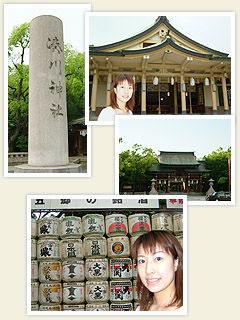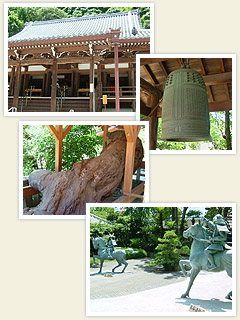��}�O�{�̓����ɑ����A�Ȃ��炩�ȍ⓹�i�k���j��15������o���Ă����ƁA�R�{�ʂ�i�ʏ́u�ِl�ْʂ�v�j�ɒ����܂����A���̒ʂ�̎R���Ɋό��X�|�b�g�Ƃ��Đl�C�̍����ِl�ق������������Ă��܂��B
1868�N�̐_�ˊJ�`�ɔ����A���݂̎s�����̐����ɊO���l�����n���݂����܂������A�����O���l�̋}���ɂ��Z��n���s�����A���]�̂悢���Z�b�̎R�[���O���l�p�Z��n�Ƃ��Đl�C���W�߂�悤�ɂȂ�܂����B1890�N�ォ��{�i�I�Ȍ��ݍH�����n�܂�A���̌�A�����I�̊Ԃ�200���ȏ�ِ̈l�ق����Ă��A�G�L�]�`�b�N�Ȍi�ς������Ă��܂����B
�������A��Ђ��k�Ђɂ���đS���������������A���ł́A��60���̗m�����z���������Ă��܂��B�ِl�يX�́A���́u�d�v�`���I�������Q�ۑ��n��v�Ɏw�肳��A���̒n����ɂ͍��́u�d�v�������v��u�`���I�������v�Ɏw�肳�ꂽ�ِl�ق�34������A���̈ꕔ����ʌ��J����Ă��܂��B
�k�ڍׂ́A
�L�n�i�r��12�A
��13�����Q�Ɖ������l
Kitano Ijinkan (Western-style Houses)
If you exit the east exit of the Hankyu Sannomiya station and walk up the gentle slope (Kitano Hill) for about 15 minutes, you will reach Yamamoto Street. (alias "Western-style Houses). This street on the mountainside is a popular place for sightseeing, and there are many western-style houses built here.
Accompanying the opening of the Kobe Port in 1868, a foreign settlement area was created on the west side of the current city hall, but the number of foreigners coming to Japan quickly rose and there was a housing shortage. The west side of Mt. Rokko had a good view and became a popular residential place for foreigners.
Actual construction started in the 1890s and more than 200 houses were built in only fifty years, more than 200 western-style houses were built and gave the landscape an exotic view.
Unfortunately, the vast majority of houses were destroyed either by World War II or by large earthquakes, leaving approximately 60 houses left of the original Western-styled houses. The area containing the Western-styled houses was designated as an "important historical restoration area" with 34 of the houses having been designated as an "important cultural assets of Japan" or "traditional building." Some of these houses are open to the public.

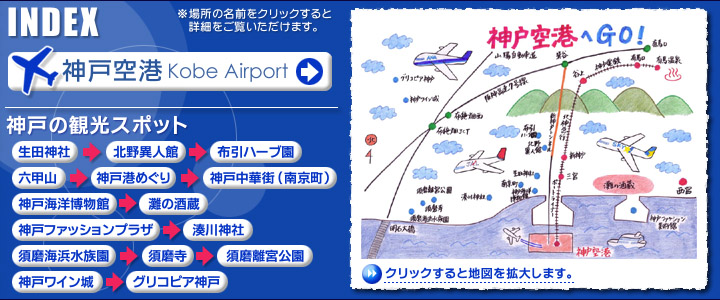




 �@�@
�@�@






